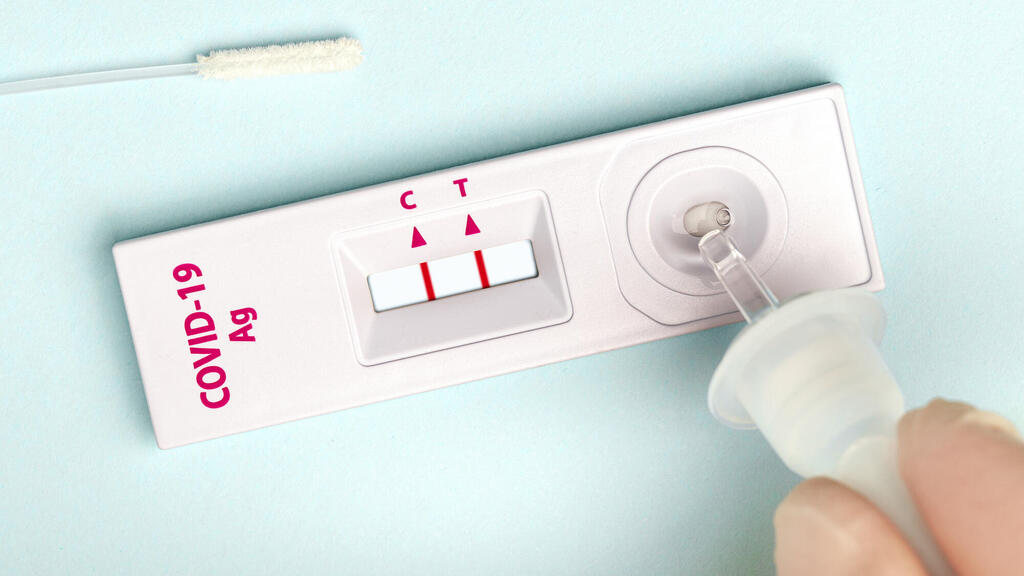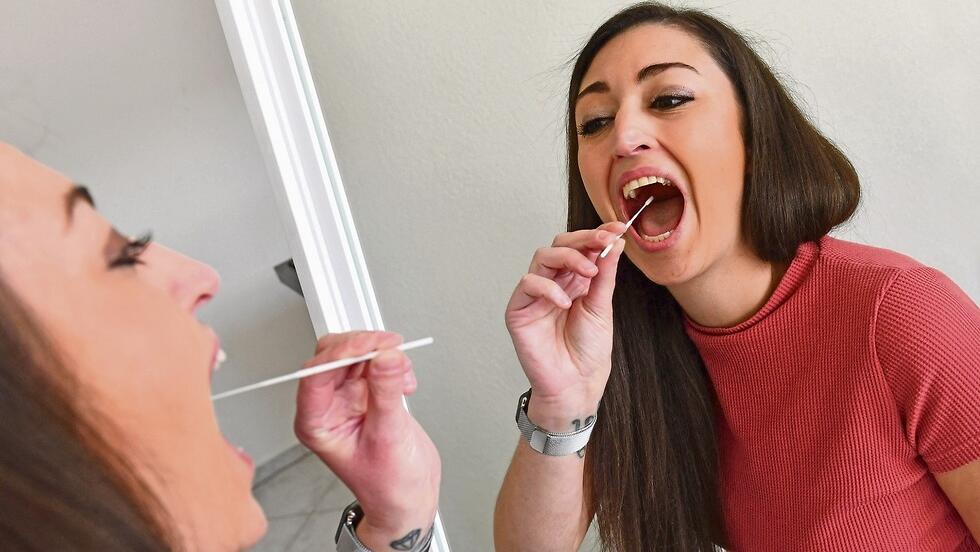People self-testing for COVID-19 should swab their throat as well as their nose when using rapid antigen kits to increase the chances of detecting the Omicron variant, a top Israeli health official said on Monday.
The recommendation, given Monday by Health Ministry's Head of Public Health Dr. Sharon Alroy-Preis on Army Radio, follows Israel's revision to its testing policy which allows Israelis under the age of 60 to get tested at home using antigen rapid testing kits, which the health official says are less sensitive in detecting the virus then PCR tests.
"In order to increase their sensitivity we will from now on recommend swabbing the throat and the nose. It's not what the manufacturer instructs but we are instructing this," she said.
The recommendation goes against the advice of the U.S. Food and Drug Administration, which has said manufacturers' instructions should still be followed and that any incorrect use of throat swabs could pose a safety risk.
The Health Ministry did not immediately respond when asked if it has checked throat swabs using nasal test kits work and whether it has sought advice from the manufacturers.
Alroy-Preis said that when exposed to a carrier, people should take more than one test or at least wait three days since exposure before testing with rapid kits.
Some infectious disease experts have advocated throat swabbing with antigen tests because people can already transmit Omicron to others when it has infected their throat and saliva but before the virus reaches their nose.
A study released on Wednesday on medRxiv before peer review looked at 29 Omicron-infected workers in high-risk professions who had PCR and antigen tests done simultaneously on multiple days.
The PCR tests of saliva detected the virus on average three days before rapid nose-swab samples became positive.
But the FDA tweeted on Friday: "when it comes to at-home rapid antigen COVID-19 tests, those swabs are for your nose and not your throat".
Throat swabs, it said, "if used incorrectly, can cause harm to the patient".




